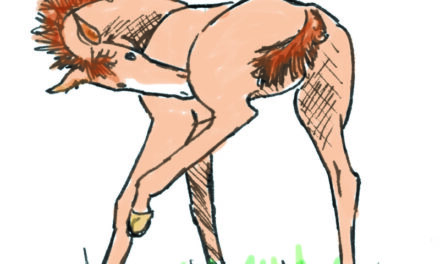Celebrating High-Quality Horse Farm Stewardship in Maryland
Spotlight on Persimmon Tree Farm, Westminster, Carroll County
first published in the November 2021 Equiery
Persimmon Tree Farm (Westminster) was recently awarded one of four Maryland Leopold Conservation Awards for farm owners who inspire others with their dedicatoin to land, water, and wildlife habitat management on private, working lands.
When it comes to implementing best practices to protect our natural environment, horse farms can be significant and important contributors to meeting the goals of carbon reduction, clean water protection, and wildlife habitat preservation. Persimmon Tree Farm, owned by Maryland Horse Council member Carolyn Krome, is an example of a horse farm managed for the maximum benefit of the twenty hunter/jumper show horses on the property AND for implementing high-level environmental protection practices. Krome purchased the farm in 1985 and has installed a variety of best management practices over the course of many years. Persimmon Tree boarders appreciate the high-quality care of the horses as well as the natural beauty of the farm.
This 132-acre farm has hilly topography, woodlands, and multiple natural water sources. Because quality farm management starts with the layout and maintenance of the pastures, the horses benefit from quality grazing in fields laid out to minimize erosion around gates. All water courses are outside of the pastures. The pastures are mowed, limed, dragged and over-seeded on a regular basis. Based on the turnout management system, the number of horses per pasture is in the range of two acres per horse. The pastures provide forage and natural exercise for these top competition horses. The pastures are also a net plus for the environment. The grasses and soil fix atmospheric carbon through photosynthesis and the breakdown of organic matter. The roots in the ground and consistent grass cover slow down water runoff to minimize erosion, remove sediment, and absorb nutrients before the water enters the Chesapeake Bay Watershed.
Water management on the farm incorporates best practices for streams, wetlands and hard surface runoff. The buildings, driveway, and parking areas are bordered by grassy verges to slow down rainwater runoff. Manure is collected on a concrete pad and hauled off the property. The steep slopes of the farm that are not suitable for pastures are planted in warm season grasses to hold the soil. These are kept healthy through dethatching and controlled burns. In an area that regularly flooded, a wetland was established and the stream was restored with vegetation along the banks to reduce sediment and nutrient runoff. New trees were planted to increase the soil’s water retention capacity and to fix atmospheric carbon. The water leaving the farm is now clean.
The several acres of woodlands on the property are managed with expert advice for tree health and propagation of native species. Trees within pastures provide shade and wind breaks, and they are fenced off to protect them and to provide sheltered places for wildlife. These mature trees are also carbon fixing champions.
Wildlife habitat is of special interest to Krome. Each zone of the farm provides support for birds, forest animals, bees, and butterflies. Native plants are cultivated around the farm and maintained in a healthy condition through dethatching and regular seeding. Wildlife of all types is seen on the farm every day.
Finally, Krome is a leader in using and promoting the many farm and environmental support programs at the county and state levels, including technical and financial assistance. In her experience, these land management practices can be put in place while keeping costs reasonable and tapping into available resources. She also uses the farm, through offering guided tours and hosting meetings of experts, to educate horse farm owners and managers, as well as other interested parties, on how to respect the land and run a successful riding operation at the same time. In recognition of her leadership, Persimmon Tree Farm was the first horse farm in Maryland to qualify for the Farm Stewardship Certification and Assessment Program (FSCAP) of the Maryland Association of Soil Conservation Districts (MASCD). She has been and remains an invaluable resource for the Maryland Horse Council Farm Stewardship Committee.
If you are interested in serving on MHC’s Farm Stewardship Committee, please contact Jane Thery at theryjane@gmail.com.













